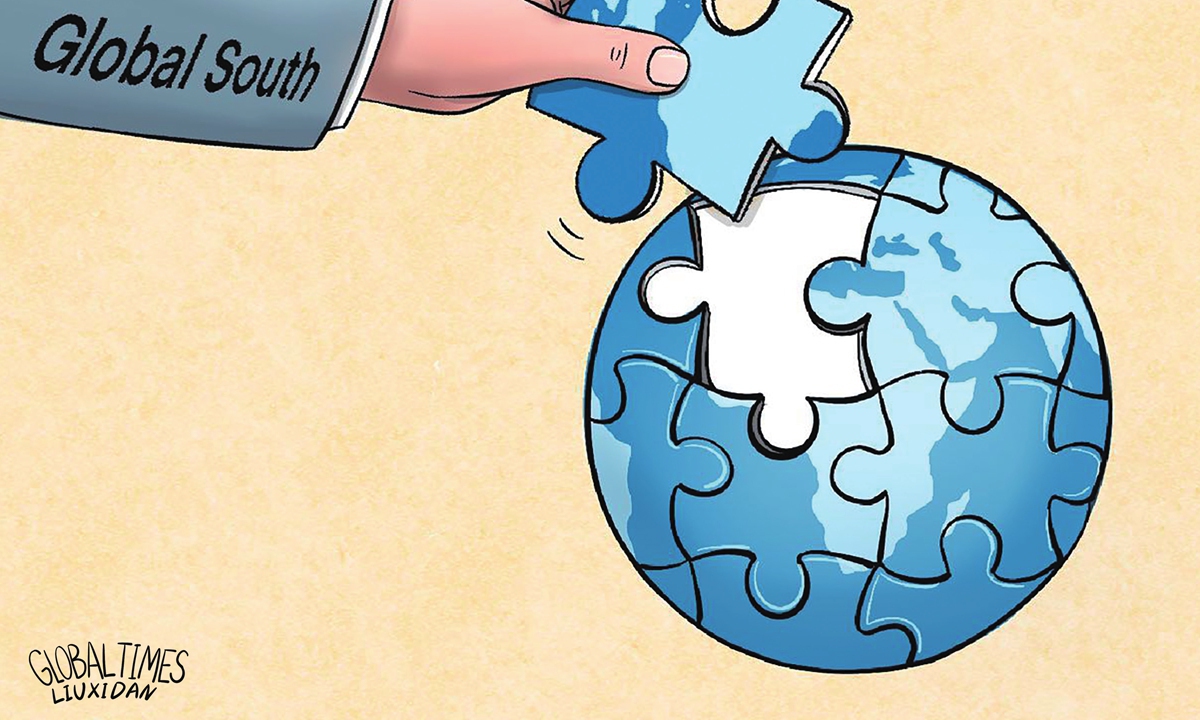
Illustration:Liu Xidan
Indonesian President Prabowo Subianto said on Tuesday that the country will join the New Development Bank (NDB), a multilateral bank developed by BRICS member nations, Reuters reported.
This reported decision is particularly significant against the backdrop of US President Donald Trump's warning to BRICS countries not to challenge the dollar's dominance. Amid financial market turbulence, Indonesia's move is not only crucial for its own economic development but also reflects the growing urgency of developing countries' economic needs for strengthening South-South cooperation in the face of increasing pressures from Western economic hegemony.
Indonesia is a major Asian nation and a core ASEAN member. Its motivation for joining the NDB goes beyond economic benefits, aiming to enhance its strategic autonomy through multilateral cooperation mechanisms. This choice aligns with its independent and active foreign policy and reflects the trend of emerging economies seeking greater influence in global governance. The effectiveness of Indonesia's participation within this framework will depend on how it balances domestic and international interests and advances the implementation of specific cooperation projects.
Developing economies are facing unprecedented pressures amid the increasingly complex international landscape. The US Federal Reserve's monetary policy has had a major impact on capital flows in developing countries, destabilizing currencies and financial systems in these countries. Rising trade protectionism has erected significant barriers to the export-driven growth of developing countries.
Moreover, drastic fluctuations in the US dollar exchange rate have exposed developing countries to substantial risks in international trade and financial transactions. These challenges imperil their short-term economic stability and cast a shadow over their long-term development prospects.
Countries in the Global South are also presented with unprecedented opportunities. Over the past two decades, the share of the Global South in global real GDP has been on a steady rise, currently exceeding 40 percent. The IMF projected in its January World Economic Outlook that the economic growth rate of emerging markets and developing economies will reach 4.2 percent in 2025, outpacing the global average.
It is precisely at this critical juncture that the importance of South-South cooperation has become even more prominent. Rooted in the shared historical experiences and common development objectives of developing countries, South-South cooperation enables these nations to pool resources, create powerful synergies and collectively address external challenges. This cooperation mechanism helps alleviate the economic difficulties faced by developing countries and provides a solid foundation for them to gain more say in global governance.
Finance lies at the heart of economic development and is also a key driving force for the modernization of countries in the Global South. Given the diverse resource endowments and industrial strengths of these countries, it is essential to deepen market integration, optimize resource allocation and achieve mutually beneficial outcomes. This necessitates the facilitation of financial connectivity, which can be significantly enhanced through South-South financial cooperation. It provides crucial financial support for infrastructure projects such as ports, roads and bridges, driving regional economic integration and fortifying the resilience of developing countries against financial shocks.
Of course, financial cooperation is just one aspect of the broader South-South collaboration. In recent years, developed countries have increasingly resorted to non-tariff barriers, such as technical standards and intellectual property regulations, impeding the industrial upgrading and technological progress of developing nations. To overcome these obstacles, it is imperative for developing nations to deepen regional value chains and enhance technology research and development initiatives.
It is important to note that the deepening of South-South cooperation aims to foster a more diversified and balanced international system, not confrontation. In the face of pressing global challenges such as climate change and food security, the need for comprehensive global cooperation has never been more critical.
However, when some developed countries adhere to unilateralism and protectionism, it becomes imperative for developing countries to enhance their cooperative efforts. By doing so, they can collectively safeguard their rights to sustainable development and ensure that their voices are heard in the global arena.




